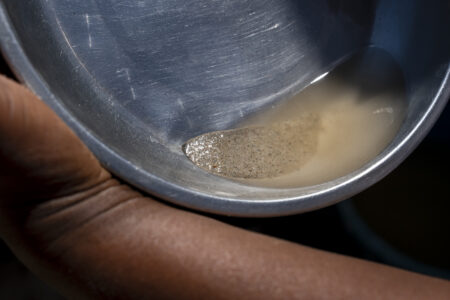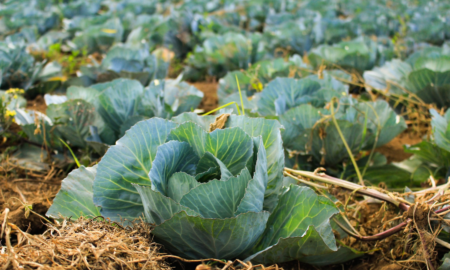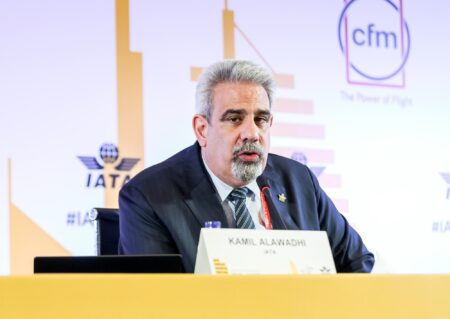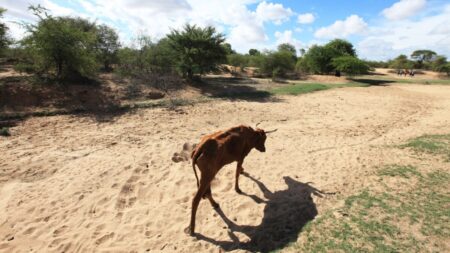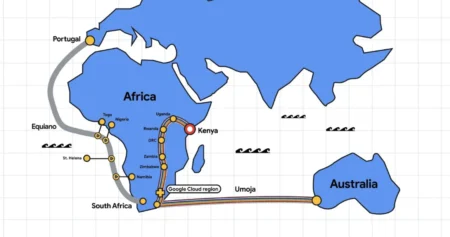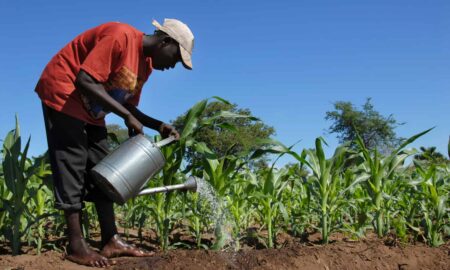- The silent struggle: Women entrepreneurs in Africa and the financial divide
- Questions and answers on confirmation of war crime charges against Joseph Kony at the ICC
- The critical need for energy access in Africa: A roadmap to prosperity
- Killings, abductions, cruel laws worsen East Africa’s human rights record
- Will the Kampala Declaration deliver for African farmers amid climate change?
- Investments in ports, ICT and agriculture key in landmark Kenya-UAE trade pact
- The Just Energy Transition in Africa: Lessons from South Africa and Senegal
- Mukuru Wallet poised to bolster financial inclusion in Zimbabwe
Browsing: zimbabwe
- Mukuru Wallet is set to allow millions of users in Zimbabwe to send and receive money locally and internationally via mobile phones.
- The service provides convenience and cost savings, such as paying for utilities, buying airtime, DStv bills and insurance.
- Launch of Mukuru Wallet comes after the company received a Deposit-Taking Microfinance Institution licence from the Reserve Bank of Zimbabwe.
Financial services platform Mukuru has launched a mobile wallet in Zimbabwe just weeks after the company received a Deposit-Taking Microfinance Institution (DTMFI) licence from the country’s central bank.
With more than three-million customers in Zimbabwe, Mukuru wallet is poised to offer several services, including its standout features: two pockets that allow users to send and receive money locally and internationally from mobile phones, safe storage of funds as well as a free cashout on international transfers.
“To avoid disappointing people who travel long distances to receive their remittances which they …
- Initiative targets 7,500 artisanal gold miners and will be spread in over five years at a cost of $24 million.
- In Zimbabwe, about 96% of artisanal gold mine sites use mercury, with miners working without protective gear.
- Mercury used in gold extraction goes a long way in polluting air, water and soil, thereby worsening food chains.
Thousands of workers in artisanal gold mines in Zimbabwe are set to benefit from a $23.7 million initiative that seeks to significantly reduce the use of toxic mercury element in the mineral’s extraction across the country.
The government-backed project aims to align the country with responsible mining industry standards at a time when buyers in the world are championing for ethical sourcing of minerals.
According to a statement, the initiative was launched in mid-November in the capital Harare with an Inception Workshop that drew stakeholders to discuss how planetGOLD Zimbabwe will support a more …
- Food security, livelihoods, and economies are threatened as extreme weather conditions hit Africa hard.
- Citizens are now calling for bold action from their governments and the global community to combat this worsening crisis.
- Over 82% of Africans advocate for measures to protect communities against extreme floods, droughts, and environmental degradation.
As climate change tightens its grip, the African continent is bearing the brunt of extreme weather conditions that have profoundly impacted food security, livelihoods, and economies.
A recent Afrobarometer survey paints a stark picture of the hard reality for millions of Africans: worsening droughts and crop failures are threatening their very survival. Citizens are now calling for bold action from their governments and the international community to combat this worsening crisis.
A decade of declining agricultural yields
Over the past decade, the majority of Africans report an alarming increase in the severity of droughts and crop failures. According to Afrobarometer…
- Organic farming offers an alternative that leverages locally available farm inputs to drive crop yields.
- By using compost, mulching, and integrated pest control, smallholders in Zimbabwe are cutting costs and overreliance on external inputs.
- Smallholder farmers are gaining valuable skills in organic practices through partnerships with entities such as the Fambidzanai Permaculture Centre.
In recent years, Zimbabwe has experienced a steady rise in organic agriculture as a sustainable alternative to conventional farming. Facing food security challenges exacerbated by climate change, erratic weather patterns, and limited access to fertilizers, Zimbabwean farmers have turned to organic methods as a solution.
Organic agriculture, which eschews synthetic chemicals in favour of natural farm inputs, is not only helping address food shortages but is also empowering smallholder farmers with resilient and ecologically sound farming practices.
The rise of organic agriculture in Zimbabwe
Organic farming in Zimbabwe is not merely a trend but a necessity born …
- AI in agriculture is being used to drive the sourcing of real-time data, perform predictive analysis, and run algorithms that optimize farming practices.
- In South Africa, Kenya, and Zimbabwe, ITIKI, an innovative project is tapping indigenous environmental knowledge among African communities, integrating it with AI to predict droughts with better precision.
- GSMA: AI in agriculture is poised to enable the deployment of innovative digital financial solutions such as credit and insurance products for millions of farmers.
In Africa, a continent of over 1.2 billion people, agriculture remains the primary economic activity, accounting for 17 percent of the GDP on average while offering jobs to nearly 60 percent of the population.
The bulk of the food produced in Africa or about 80 percent is, however, attributable to the effort of smallholder farms, where women provide much of the workforce. Unfortunately, these smallholder farmers continue to face multiple …
- Algeria tops countries holding airlines’ blocked funds in Africa at $261 million followed by countries within the XAF Zone that are trapping $140 million.
- Ethiopia has $115 million in blocked funds for airlines while its neighbour Eritrea is sitting on $75 million.
- Zimbabwe closes the top five countries with blocked funds at $69 million.
Airlines across the world continue to struggle to repatriate their profits, with several African countries accounting for the bulk of blocked funds at $880 million. This amount, which represents 52 percent of the total $1.68 billion blocked funds globally continues to act as a hindrance to the growth of the industry post-Covid-19 fallout.
Data from the International Air Transport Association (IATA) has single out Algeria, the XAF Zone, Ethiopia, Eritrea, and Zimbabwe as the top five countries in Africa where airlines are struggling to repatriate their profits.
Across Africa, Algeria tops among …
- The IMF forecasts that Zimbabwe’s economy will decelerate to about 2% this year, down from 5.3% in 2023, due to a severe El-Niño-induced drought.
- Declared a national disaster in April 2024, the El-Niño-induced drought in Zimbabwe has severely hit agriculture, and tourism while sparking human-wildlife conflict.
- Traditional grain suppliers Zambia and Malawi are unable to meet Zimbabwe’s needs, compelling Harare to import GMO maize from South Africa.
The International Monetary Fund (IMF) has projected that Zimbabwe economy will decelerate to about 2 percent this year, down from 5.3 percent in 2023, primarily due to a severe El-Niño-induced drought, which has adversely affected agriculture, a critical sector for the Southern African country’s economy.
Declared a national disaster in April 2024, the El-Niño-induced drought in Zimbabwe has severely depleted water sources, with Lake Kariba, one of the country’s primary water reservoirs, holding only 13 percent of its capacity. The dire situation is …
- Google is rolling out Umoja cable, the first-ever fibre optic link directly connecting Africa with Australia, aiming to enhance global digital infrastructure and foster economic growth.
- The Umoja project, developed in collaboration with Liquid Technologies, will improve connectivity and drive digital inclusion across Africa.
- This initiative is part of Google’s long-term commitment to Africa’s digital transformation, with investments in infrastructure, cybersecurity, and AI innovation to support growth.
In a deal set to revolutionize digital connectivity across continents, tech heavyweight Google has announced the launch of Umoja, the first-ever fibre optic link directly connecting Africa with Australia. This project is poised to enhance global digital infrastructure, foster economic growth, and drive digital inclusion on a new level scale.
The Umoja cable, anchored in Kenya, will traverse a diverse array of African countries, including Uganda, Rwanda, the Democratic Republic of Congo, Zambia, Zimbabwe, and South Africa, before crossing the Indian Ocean …
- Zimbabwe is phasing out ZWL as it ushers a new gold-backed currency, ZiG, starting today, Monday, 8 April 2024.
- The ZiG is anchored by 2.5 tonnes of gold in the central bank’s vault and a basket of foreign currencies held as reserves.
- Zimbabwe’s new Central Bank Governor has announced sweeping reforms as the new currency enters everyday use.
Zimbabwe launched a new currency on Friday, 5 April 2024, called the Zimbabwe Gold or the ZiG. The launch of the new currency occurred during the announcement of the country’s latest Monetary Policy Statement (MPS) in an event presided over by newly appointed central bank governor John Mushayavanhu.
The MPS introduced measures and interventions to anchor the local currency and ensure exchange rate and price stability. The old currency, the ZWL, had depreciated to its lowest against the US dollar, roughly ZWL 32,000. It lost over 90 per cent of its …
- Irrigation in Africa has the potential to essentially double agricultural productivity.
- In Sub-Saharan Africa, irrigation is a key factor in achieving food security, yet it remains vastly under-utilised.
- FAO advises that each African country assess its irrigation potential as the basis for planning sustainable food production.
Irrigation in Africa has the potential to essentially double agricultural productivity, boosting output by up to 50 per cent. This optimistic evaluation is provided by the UN Food and Agriculture Organisation (FAO). However, even with this potential, FAO shares concerns that it is vastly underutilized, with agriculture in Africa remaining predominantly rain-fed.
“Although irrigation in Africa has the potential to boost agricultural productivity by at least 50 percent, food production on the continent is almost entirely rainfed,” reports FAO.
According to FAO data, the area under irrigation in Africa currently makes up just 6 percent of the total cultivated area. In Sub-Saharan Africa, irrigation …






